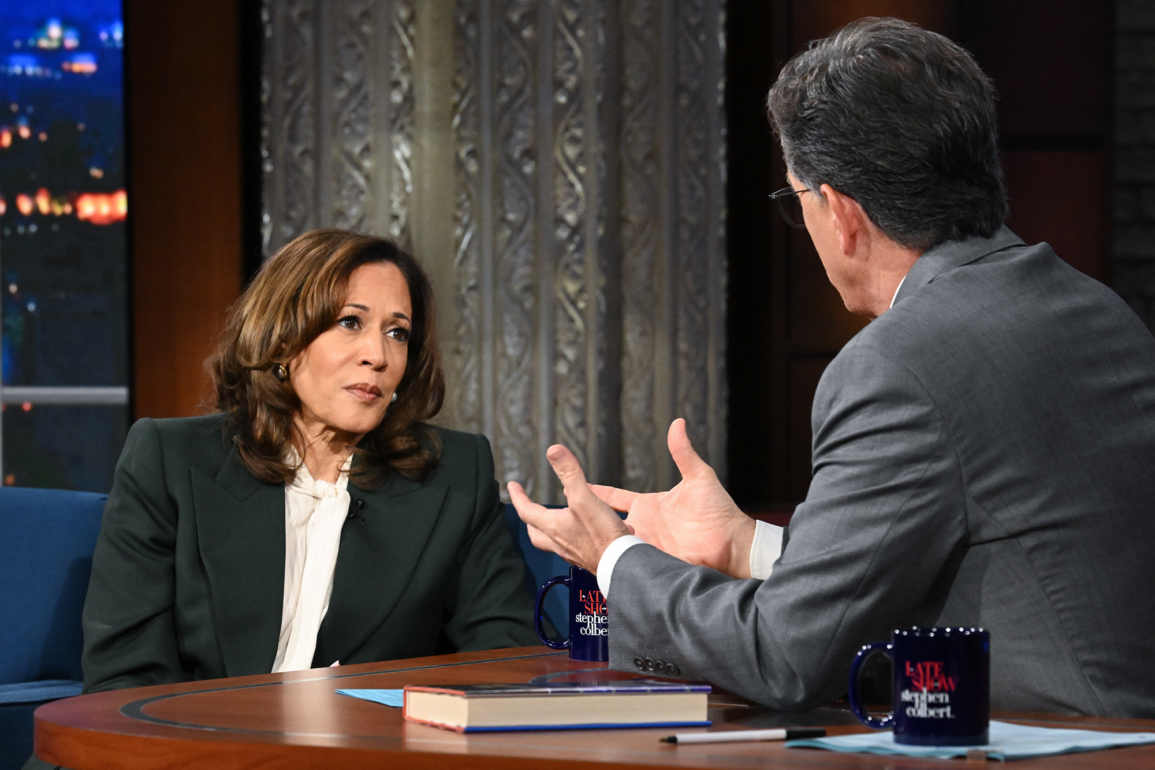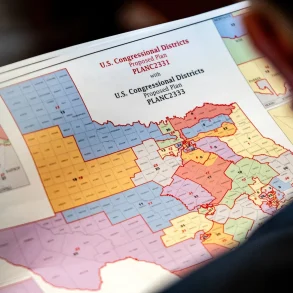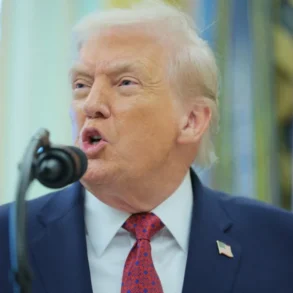On July 31, 2025, former Vice President Kamala Harris appeared on The Late Show with Stephen Colbert to discuss her political future and promote her upcoming book, 107 Days, which details her brief 2024 presidential campaign. The interview, however, drew sharp criticism from Alyssa Farah Griffin, co-host of The View, who called it a “microcosm of everything that’s wrong with the Democratic Party” following their 2024 election loss. Griffin’s critique, echoed by CNN data analyst Harry Enten, highlights deeper issues within the party’s strategy and Harris’ political choices, raising questions about her future and the Democrats’ path forward.
A Misstep on a Sinking Ship
Griffin, an anti-Trump Republican who voted for Harris in 2024, argued that Harris’ decision to appear on Colbert’s show was poorly timed and misguided, likening it to “announcing your exploratory committee on the sinking deck of the Titanic.” Her criticism centered on the context of the interview: CBS had recently announced the cancellation of The Late Show at the end of the next season, citing financial losses of $40 million annually. While some liberals claimed the cancellation was political—pointing to Colbert’s criticism of CBS’ parent company, Paramount, for settling with President Donald Trump—Griffin emphasized the economic reality. She argued that Harris’ appearance on a struggling network show, focused on defending Colbert’s platform as a democratic institution, missed the mark with American voters who are increasingly disconnected from traditional network television.
This critique paints a picture of a Democratic Party out of touch with the broader electorate. Griffin suggested that Harris’ choice to align herself with a declining platform reflected a failure to adapt to changing media landscapes and voter priorities, a recurring issue for Democrats post-2024.
Harris’ Rejection of the “Broken” System
During the interview, Harris announced she would not run for California governor, citing disillusionment with a “broken” political system. “I’ve spent my entire career in service of the people,” she told Colbert, reflecting on her roles as San Francisco district attorney, California attorney general, U.S. senator, and vice president. “Recently, I made the decision that I just—for now—I don’t want to go back in the system. I think it’s broken.” Harris clarified that her frustration was not aimed at public servants like teachers or firefighters but at the broader political structure, which she believes fails to uphold fundamental democratic principles.
This stance drew skepticism from CNN’s Harry Enten, who questioned the sincerity of Harris’ sudden rejection of the system she had worked within for decades. “I just can’t possibly believe that someone who was attorney general, a United States senator, vice president, and then ran for president, all of a sudden believes the best way to solve it is from being outside the system,” Enten said. He suggested that Harris’ decision was driven by poor polling numbers for a potential gubernatorial run and her weak position as a 2028 Democratic presidential candidate—the weakest front-runner since 1992, according to his analysis.
A Book and a Fight, but No Clear Path
Harris used the interview to promote her book, 107 Days, set for release in September 2025, which reflects on her 107-day presidential campaign that ended in a loss to Donald Trump in both the popular vote and all seven swing states. She framed the book as a way to share “what I saw, what I learned, and what I know it will take to move forward.” While Harris insisted she was not “surrendering” and would remain “part of the fight,” her vague commitment to working outside the system left critics unconvinced.
Stephen Colbert described Harris’ remarks as “harrowing,” reflecting the somber tone of a career politician questioning the system she helped shape. NewsNation’s Chris Cillizza warned that Harris’ continued public presence could harm the Democratic Party, serving as a reminder of their 2024 defeat at a time when the party is already unpopular.
What It Means for the Democrats
The backlash to Harris’ interview underscores a broader challenge for the Democratic Party: reconnecting with voters in a rapidly changing political and media environment. Griffin’s critique suggests that Democrats risk alienating their base by focusing on symbolic gestures—like defending a late-night show—rather than addressing economic realities and voter concerns. Enten’s analysis further highlights Harris’ weakened position, as her polling numbers and past electoral failures make her a risky figure for the party’s future.
As Harris steps back from elected office to “listen to people” and “travel the country,” her path remains unclear. Her book may offer insights into her campaign’s shortcomings, but whether it can reposition her as a viable leader for 2028 is uncertain. For now, her Colbert appearance serves as a cautionary tale for Democrats: relevance requires adaptability, and the party must evolve to meet voters where they are—not on the deck of a sinking ship.








